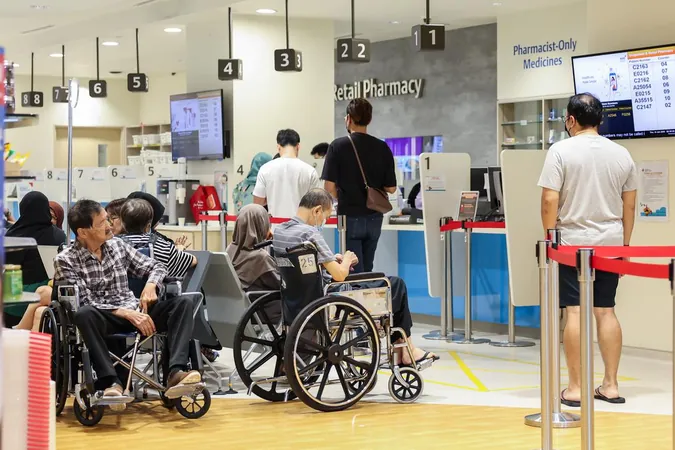
Singapore's Healthcare Spending Set to Soar – What You Need to Know!
2025-04-10
Author: Rajesh
Healthcare Costs on the Rise: A Growing Concern for Singaporeans
In a striking revelation, Singapore's Health Minister, Ong Ye Kung, forecasts that spending on healthcare could balloon to an astonishing $30 billion annually by 2030. As aging populations increasingly demand medical services, healthcare may soon dominate government spending.
Current Financial Landscape
As of 2025, Singapore's government has earmarked $20.9 billion for health-related expenditures, placing it just behind defense, which has a budget of $23.4 billion. Minister Ong highlighted a significant upward trend, noting that healthcare spending surged from $9 billion in 2015 to an anticipated $18 billion in 2024.
Why Is Spending Increasing?
Ong emphasizes that a considerable portion of the budget will be allocated to developing new healthcare infrastructures, including hospitals, nursing homes, and community care centers. However, a substantial amount will also be reserved for patient subsidies to keep healthcare accessible and affordable.
The Aging Population's Impact
An older demographic means more frequent hospital visits and longer stays, as seniors often present multiple health conditions. This trend is concerning; the average hospital stay has risen from 6.1 days in 2019 to 7 days in 2022, highlighting a 15% increase in patient load.
Quality of Care Remains a Priority
Despite rising demands, Minister Ong reassures citizens that the quality of healthcare will not decline. He cites advancements in medical science and technology as crucial elements in maintaining high standards of care.
Exciting Innovations on the Horizon
One noteworthy upcoming change is the expansion of MediShield Life, which will now cover cutting-edge treatments such as cell, tissue, and gene therapies. These personalized treatments represent a significant leap forward in medical possibilities but come with a high cost for each individual patient.
Shared Responsibilities in Healthcare Costs
While the government plans to heavily subsidize healthcare, Ong indicates that citizens will also need to contribute, utilizing insurance and MediSave funds to manage the rising costs of advanced care.
No Tax Hikes – Just Economic Growth!
Despite these daunting projections, Minister Ong has good news: he anticipates that there will be no need for tax increases to cover heightened healthcare spending. With expectations for economic growth, the government expects tax revenues to rise, bolstering funding for healthcare.
In Conclusion
As we look to the future, the emphasis on accessible and innovative healthcare is clearer than ever. Singaporeans can remain hopeful as their government commits to evolving healthcare needs while keeping costs manageable.


 Brasil (PT)
Brasil (PT)
 Canada (EN)
Canada (EN)
 Chile (ES)
Chile (ES)
 Česko (CS)
Česko (CS)
 대한민국 (KO)
대한민국 (KO)
 España (ES)
España (ES)
 France (FR)
France (FR)
 Hong Kong (EN)
Hong Kong (EN)
 Italia (IT)
Italia (IT)
 日本 (JA)
日本 (JA)
 Magyarország (HU)
Magyarország (HU)
 Norge (NO)
Norge (NO)
 Polska (PL)
Polska (PL)
 Schweiz (DE)
Schweiz (DE)
 Singapore (EN)
Singapore (EN)
 Sverige (SV)
Sverige (SV)
 Suomi (FI)
Suomi (FI)
 Türkiye (TR)
Türkiye (TR)
 الإمارات العربية المتحدة (AR)
الإمارات العربية المتحدة (AR)